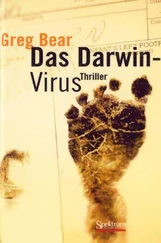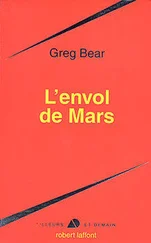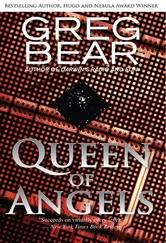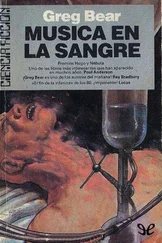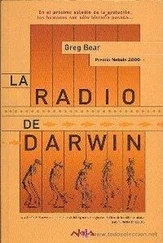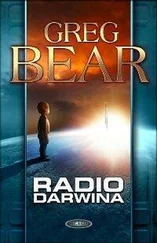Paskow had copied key statistical records. She handed Lipton these papers.
“Thank you for your time,” Dicken said.
“Mr. Dicken,” Paskow called after them. “A vaccine would save everyone a lot of grief.”
Lipton saw Dicken to his car. A black woman in her thirties walked past them and stood at the blue door. She had wrapped herself in a long wool coat, though the day was warm. She was more than six months pregnant.
“I’ve had enough for one day,” Lipton said, her face pale. “I’m going back to the campus.”
“I have to pick up some samples,” Dicken said.
Lipton put her hand on the door and said, “The women at our clinic have to be told. None of them have STDs, but they’ve all had chicken pox and one has had hepatitis B.”
“We don’t know that chicken pox causes problems,” Dicken said.
“It’s a herpes virus. Your lab results are scary, Christopher.”
“They’re incomplete. Hell, almost everyone has had chicken pox, or mono, or cold sores. So far, we’re only positive about genital herpes and hepatitis and possibly AIDS.”
“I still have to tell them,” she said, and closed the door for him with a definite slam. “It’s about ethics, Christopher.”
“Yeah,” Dicken said. He kicked at the emergency brake release and started the engine. Lipton walked toward her own car. After a few seconds, he made a disgusted face, shut the engine off again, and sat with his arm out the window, trying to decide how he could best spend his time in the next few weeks.
Things were not going at all well in the labs. Fetal tissue and placenta analysis on samples sent from France and Japan showed vulnerability to all manner of herpes infections. Not a single second-stage pregnancy had survived birth, of the 110 studied thus far.
It was time to make up his mind. Public health policy was in a critical state. Decisions and recommendations would have to be made, and politicians would have to react to those recommendations in ways that could be explained to clearly divided constituencies.
He might not be able to salvage the truth. And the truth seemed remarkably remote at this point. How could something as important as a major evolutionary event be sidetracked so effectively?
On the seat beside him he had dumped a pile of mail from his office in Atlanta. There had been no time to read it on the plane. He pulled out an envelope and swore under his breath. How had he not seen it right away? The postmark and handwriting were clear enough: Dr. Leonid Sugashvili, writing from Tbilisi in the Republic of Georgia.
He tore open the envelope. A snapshot-size black-and-white photograph on slick paper fell into his lap. He picked it up and examined the image: figures standing before a ramshackle old wood-frame house, two women in dresses, a man in overalls. They looked slender, perhaps even slight, but there was no way to be sure. The faces were indistinct.
Dicken pulled open the folded letter accompanying the photo.
Dear Dr. Christopher Dicken,
I have been sent this photograph from AtzharisAR, you call perhaps Adjaria. It was taken near Batumi ten years ago. These are putative survivors from the purges you have shown such interest in. There is little to be seen here. Some say they are still alive. Some say they are really from UFO but these people Ida not believe.
I will look for them and inform you when the time comes. Finance is in very short supply. I would appreciate financial assistance from your organization, the NCID. Thank you for your interest. I feel they may not be “Abominable Snow People “ at all, but real! I have not informed the CDC in Tbilisi. You are the one I have been told to entrust.
Sincerely,
Leonid Sugashvili
Dicken examined the photograph again. Less than no evidence. Will-o’-the-wisps.
Death rides in on a pale horse, slicing babies right and left, he thought. And I’m teamed up with crackpots and money-grubbing eccentrics.
Mitch called his apartment in Seattle while Kaye was taking a shower. He punched in his code and retrieved his messages. There were two calls from his father, a call from a man who did not identify himself, and then a call from Oliver Merton in London. Mitch wrote the number down as Kaye came out of the bathroom, loosely wrapped in a towel.
“You delight in provoking me,” he said. She dried her short hair with another towel, gazing at him with an appraising steadiness that was unnerving.
“Who was that?”
“Picking up my messages.”
“Old girlfriends?”
“My father, somebody I don’t know — a man — and Oliver Merton.”
Kaye lifted her eyebrow. “An old girlfriend might make me happier.”
“Mmm hmm. He wonders if I would a make a trip to Beres-ford, New York. He wants me to meet somebody interesting.”
“A Neandertal?”
“He says he can arrange for my expenses and accommodations.”
“Sounds wonderful,” Kaye said.
“I haven’t said I’ll go. I haven’t the slightest idea what he’s up to.”
“He knows quite a bit about my business,” Kaye said.
“You could come with me,” Mitch said with a squint that showed he knew this was too hopeful.
“I’m not done here, not by a long shot,” she said. “I’ll miss you if you go.”
“Why don’t I call him and ask what he’s got in his bag of tricks?”
“All right,” Kaye said. “Do that, and I’ll fix us two bowls of cereal.”
The call took a few seconds to go through. The low trill of an English phone was quickly interrupted by a breathless, “Fuck it’s late and I’m busy. Who’s this?”
“Mitch Rafelson.”
“Indeed. Pardon me while I wrap myself. I hate talking half-naked.”
“Half!” exclaimed a perturbed woman in the same room. “Tell them I’m soon to be your wife, and you are completely naked.”
“Shush.” Louder, phone half-muffled, Merton called to the woman, “She s getting her essentials and going into the next room.” Merton removed his hand and brought his mouth closer to the phone. “We need to talk in private, Mitchell.”
“I’m calling from Baltimore.”
“How far from Bethesda is that?”
“A ways.”
“NIH have you in the loop yet?”
“No,” Mitch said.
“Marge Cross? Ah…Kaye Lang?”
Mitch winced. Merton’s instincts were uncanny. “I’m a simple anthropologist, Oliver.”
“All right. The room’s empty. I can tell you. The situation in Innsbruck has hotted up considerably. It’s gone beyond fistfights. Now they don’t even like each other. There’s been a falling-out, and one of the principals wants to talk to you.”
“Who?”
“Actually, he says he’s been a sympathizer since the beginning. Says he called you to tell you they’d found the cave.”
Mitch remembered the call. “He didn’t leave a name.”
“Nor will he now. But he’s on the level, he’s important, and he wants to talk. I’d like to be there.”
“Sounds like a political move,” Mitch said.
“I’m sure he’d like to spread some rumors and see what the repercussions are. He wants to meet in New York, not Innsbruck or Vienna. At the home of an acquaintance in Beres-ford. Do you know anybody there?”
“Can’t say that I do,” Mitch replied.
“He hasn’t told me what he’s thinking yet, but…I can put a few links together and it all makes a very nice chain.”
“I’ll think about it and call you back in a few minutes.”
Merton did not sound happy about waiting even that length of time.
“Just a few minutes,” Mitch assured him. He hung up. Kaye emerged from the kitchen with two bowls of cereal and a pitcher of milk on a tray. She had put on a calf-length black robe tied with a red cord. The robe showed off her legs, and, when she bent over, neatly revealed a breast. “Rice Chex or Raisin Bran?”
Читать дальше
Конец ознакомительного отрывка
Купить книгу

